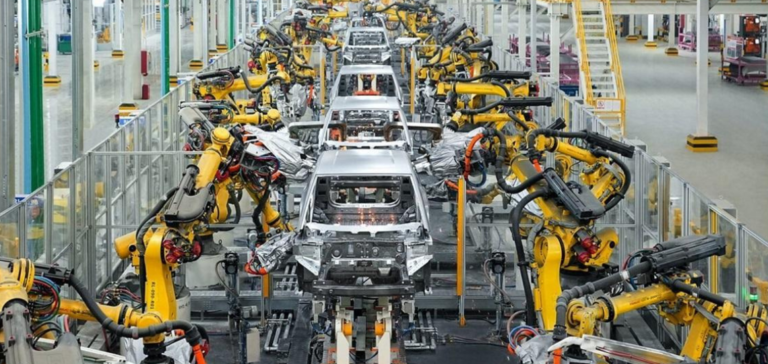Automaker BYD reports a 24.4% increase in net profit for the first half of 2024, reaching 13.63 billion yuan (1.71 billion euros).
This performance is noteworthy against a backdrop of fierce competition in the Chinese electric vehicle market, where price wars between local manufacturers are intensifying.
Group sales rose by 15.7% to 301.1 billion yuan (37.9 billion euros).
Demand for electric vehicles in China remains a key factor in this growth.
The Chinese market, although mature, continues to benefit from incentive policies, even if direct subsidies have decreased.
Manufacturers, including BYD, are adapting their strategies to maintain market share in the face of increased competition.
The current context is also prompting these companies to seek international outlets, as the local market stabilizes.
Impact of the price war and coping strategies
Since 2023, the price war on the Chinese electric vehicle market has put pressure on manufacturers’ margins.
BYD, while managing to maintain profitability, has to contend with competition that is pushing prices down, affecting the profitability of the sector as a whole.
The company, like its competitors, is forced to cut costs and optimize its production chain to absorb the impact of this price war.
This situation is already having repercussions for some market players, such as XPeng, which has announced significant losses.
However, for well-established companies like BYD, cost control and economies of scale offer a degree of resilience in the face of these challenges.
This is not stopping the manufacturer from actively seeking out new markets to offset this domestic pressure.
International expansion and regulatory challenges
The European Union recently tightened its tariff measures on Chinese electric vehicle imports, with surcharges of up to 36% as of October 2024. These measures, designed to protect local manufacturers from what Brussels regards as unfair competition, pose an additional challenge for Chinese companies.
In response, BYD is planning to open new plants in Hungary and Turkey.
The aim is to bypass tariff barriers and secure more direct access to the European market.
The plant in Turkey, in particular, plays a strategic role in avoiding the surcharges imposed by the European Union, while strengthening the manufacturer’s presence in Europe.
This expansion is essential for BYD, which is seeking to diversify its markets and reduce its dependence on the Chinese market.
Diversification and international dependence
Originally specialized in battery manufacturing, BYD diversified into the production of electric vehicles in 2003.
Today, the Group supplies batteries to a number of international automakers, including Tesla, BMW and Toyota, reinforcing its global influence.
This diversification into electric vehicle products and services enables the company to navigate in a complex market environment, playing on several fronts.
BYD’s determination to position itself as a key player in the electric vehicle industry is demonstrated by the establishment of factories in Europe and the increase in its international production.
The manufacturer’s international strategy, coupled with its ability to control costs, is crucial to maintaining its competitiveness in the face of today’s challenges.






















